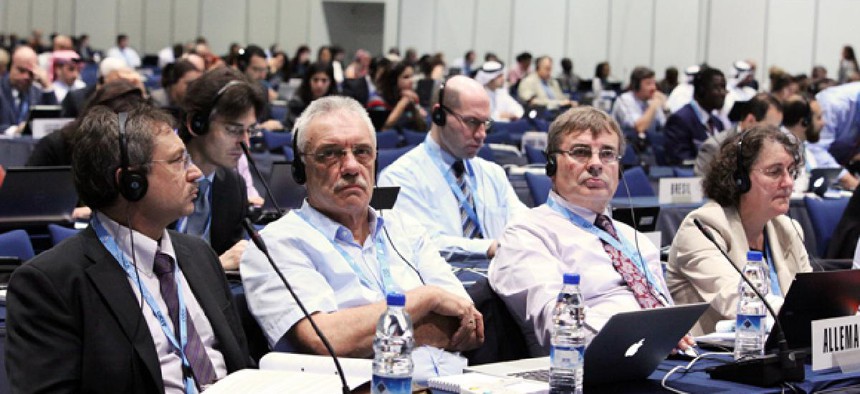How the UN's 'game-changing' Internet treaty failed

German delegates on the fourth day of the 12-day-long World Conference on International Telecommunications ITU
The document could have changed the Internet -- but probably won't. Here's what went down.
Did you know that, for the past two weeks, the future of the Internet has been at stake?
Yes, it has. Those two weeks hosted the World Conference on International Telecommunications(also hosted, technically, by Dubai). And they hosted, as well, a fairly dramatic face-off -- often between blocs led by Iran, Russia, and China and blocs led by the United States, the UK, and Canada. The purpose of the summit? To rewrite a multilateral communications treaty (official name: International Telecommunications Regulations) that has been the official governing document of the Internet since the late 1980s. The treaty, if passed with a meaningful consensus, could have significantly altered the way the Internet is governed -- and, therefore, it could have significantly altered the Internet itself.
But go ahead and exhale: Late last night, a faction led by the United States walked out of negotiations, refusing to sign the treaty. "It's with a heavy heart and a sense of missed opportunities that the US must communicate that it's not able to sign the agreement in the current form," Terry Kramer, the U.S. ambassador to the summit, put it. "The internet has given the world unimaginable economic and social benefit during these past 24 years."
So what went down last night -- and what does it mean for us, the users of (and reliers on) the Internet? Here's a guide.
NEXT STORY: Google nails the timing on its iOS Maps release





